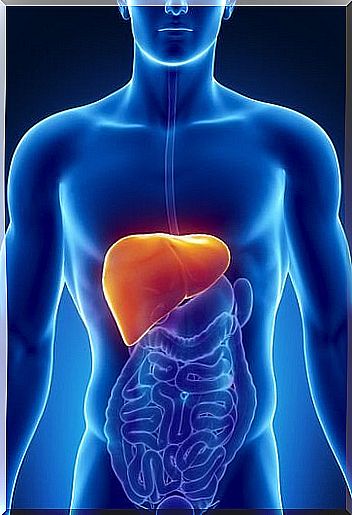Suppressing Emotions Is A Risk Factor For Liver Disease

Today it seems that the world has come to place reason above any emotion. That is why we were brought up with the idea of downplaying the importance of emotions and their adequate expressions. People tend to mold their emotional expressions into socially accepted norms, which can mean suppressing or denying certain emotions.
Some emotions are labeled as negative by society. Some of these are anger, sadness, pain and fear. An example of this can be found in some of the phrases that we will all have heard from childhood. These expressions are culturally transmitted and have become part of our most profound thoughts.
It’s very common to hear phrases like ” If they see you crying, they’re going to think you’re weak,” or ” If they see you angry, they’re going to think you’re an embittered person,” “Control yourself, don’t cry’, ‘Men don’t cry’, etc. These thoughts turned into dogmas, which have taught us to distort the way we express our own feelings . As a result, we have predisposed ourselves to some physical ailments, including liver disease.
Emotional suppression harms our physical health
Denying or suppressing emotions that are culturally biased, such as fear, sadness, or anger, does not make these emotions disappear. No matter how much you try to hide them, they will stay. When we suppress emotions and thereby deny their free expression, the effect of the expression and movement that has been inhibited is channeled to ourselves.
So, for example, if we suppress anger or fear, that muscle tension should be felt in the outward-facing muscles. These muscles intervene in the typical fight-or-flight response. Instead, this tension kicks in. That tension is then transferred to the internal muscles.
In the long run, the tension associated with emotions that has been suppressed manifests itself in other forms. Such as, for example, contractions or muscle stiffness, neck and back pain, stomach diseases, headaches and even liver diseases.
Emotions trapped within a person seek their own resolution and way out. This is part of the nature of emotions, as they are made to be felt and expressed.

Controlling your emotions is a somewhat illusory experience in certain circumstances. The performance is deceiving. A very precarious balance is maintained between the facade of ‘control’ that the individual constructs. Since the attempt to maintain control will only produce a tentative transformation of extreme behavior. Sooner or later, the repressed emotions have to come out somehow.
Emotions that attack your liver
The liver, located below the diaphragm, is the organ responsible for detoxification. Thus, the liver plays an essential role in each of our vital functions. This organ not only filters and eliminates waste, but the liver is also responsible for neutralizing poisons, toxins, microbes and cancerous substances. When this organ is affected it will cause multiple pathologies inside and outside the liver and also affect other organs.
Any type of stress or pressure blocks liver function in some way. This is because when the body is under stress, it focuses all its attention on resolving what is happening to the body and what is generating the stress. This is normal and healthy to some extent. However, when the stress is acute or repetitive, this organ chronically blocks its activity and is predisposed to congestion.
Anger is the emotion most closely linked to liver problems. The term anger should be interpreted in its broadest sense. This includes emotional states such as resentment, anger, frustration, irritation, anger, indignation, hostility, or bitterness. If these states persist for a long period of time, the liver can be affected, resulting in stagnation.

It’s a good idea to look beyond the role society has attributed to negative emotions. This will help you avoid possible liver problems and keep your liver in optimal condition. Instead of avoiding anger or frustration, we should confront the situations that generate these kinds of emotions. We can do this by talking about topics that make us uncomfortable and by solving stressful situations.









